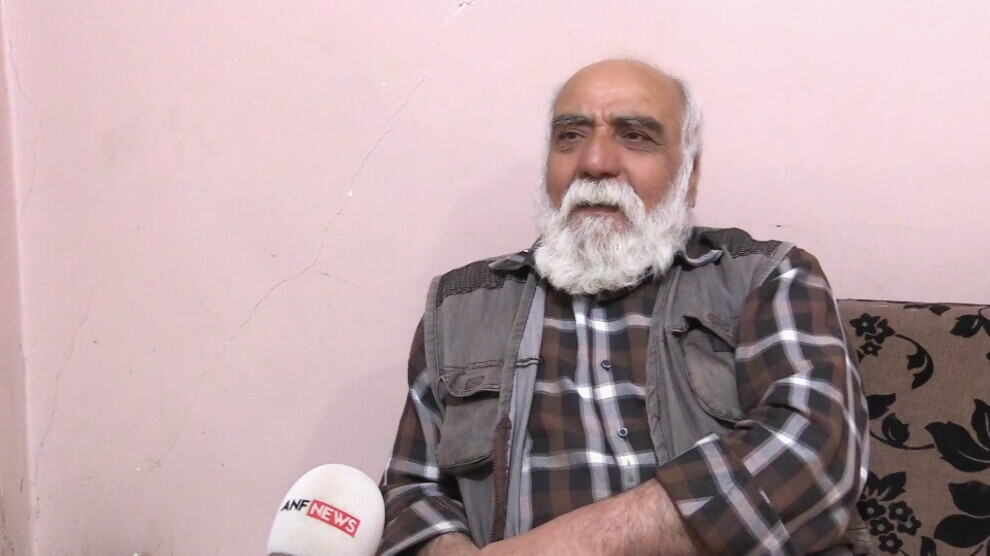Yûnis Ehmed: I feel I need to do more for my society
Theater artist Yûnis Ehmed said that he must be a mirror to his society and hopes Kurdish theater will inspire the world.
Theater artist Yûnis Ehmed said that he must be a mirror to his society and hopes Kurdish theater will inspire the world.

Yûnis Ebd Elmecîd Ehmed has dedicated four decades of his life to theater in order to become a mirror for society. Actor and director Yûnis Ebd Elmecîd Ehmed was born in 1960 in the village of Qijle, in the district of Amûdê. When he was just four years old, his family moved from the village to the city of Hesekê. Since childhood, Yûnis has been deeply passionate about theater. He always dreamed of becoming a great actor and hoped one day to teach students of his own. But his family lived in poverty and could not afford the means to support his ambitions.
Yûnis Ehmed spoke to ANF, and described how his passion began in childhood: "I was a child, and theater was a passion for me. But no one paid attention to me. My family knew about my love of theater, but due to our financial situation and the oppression of the Baath regime, they could not support me. In the years 1981–1982, the revolutionary wind coming from Northern Kurdistan made us incredibly hopeful. In 1984, that wind erupted like a volcano, and we were caught up in its heat. In 1986–1987, I returned to theater. I was truly happy in those years because I had joined theater groups. The emergence of the Kurdistan Freedom Movement empowered us greatly. At that time, our comrade Martyr Bavê Teyar was not only a revolutionary but also the person who taught us theater. I can say that Martyr Bavê Teyar had a profound impact on Kurdish theater. In fact, Kurdish theater truly began to grow with him."
He continued: "I always say that theater is the soul of a society. A person can resist through many different forms, and bringing the reality of their people to the stage is one of them. Through theater, I wanted to reflect this truth and help ensure recognition of the Kurdish people’s will. Those times were full of hardship, but we did not give up. We kept performing our plays. The Baath regime imposed brutal pressure and torture, especially on the Kurdish people. During every Newroz celebration, we staged plays in secret. The regime tried to suppress us. Yes, we experienced many difficulties in those years, but those hardships gave us the strength to survive and to move forward. Today, I am able to bring theater to the people. During the regime, this was forbidden. Back then, simply performing on stage remained a distant dream. But now, with great pride and courage, I perform my theater in front of thousands."
We broke the walls of fear
Yûnis Ehmed stated that the Rojava Revolution opened up a great opportunity for them and that they have now broken through the walls of fear. He said, “I feel deeply connected to the world of cinema. Whenever someone speaks to me about cinema, I feel immense joy and excitement. As theater artists, we carry out whatever tasks are asked of us and fulfill our responsibilities. Each of us wants to create our own space in Kurdistan because, as Mr. Öcalan says, ‘A country that has been built cannot be destroyed.’ Everyone should know that without pain and hardship, there is no path to happiness."
Ehmed explained that they perform many different types of plays, some political, some social, but all of them are haped by the condition of society. He said: "Not everyone can perform theater. Only those who deeply understand their people and can bring their emotions to the stage can truly do it. I have been working in theater for 40 years, but I still do not consider myself a true theater artist. I must do more for my society. I must be a mirror to my people. My greatest hope is for Kurdish theater to develop further and become an example of global art."